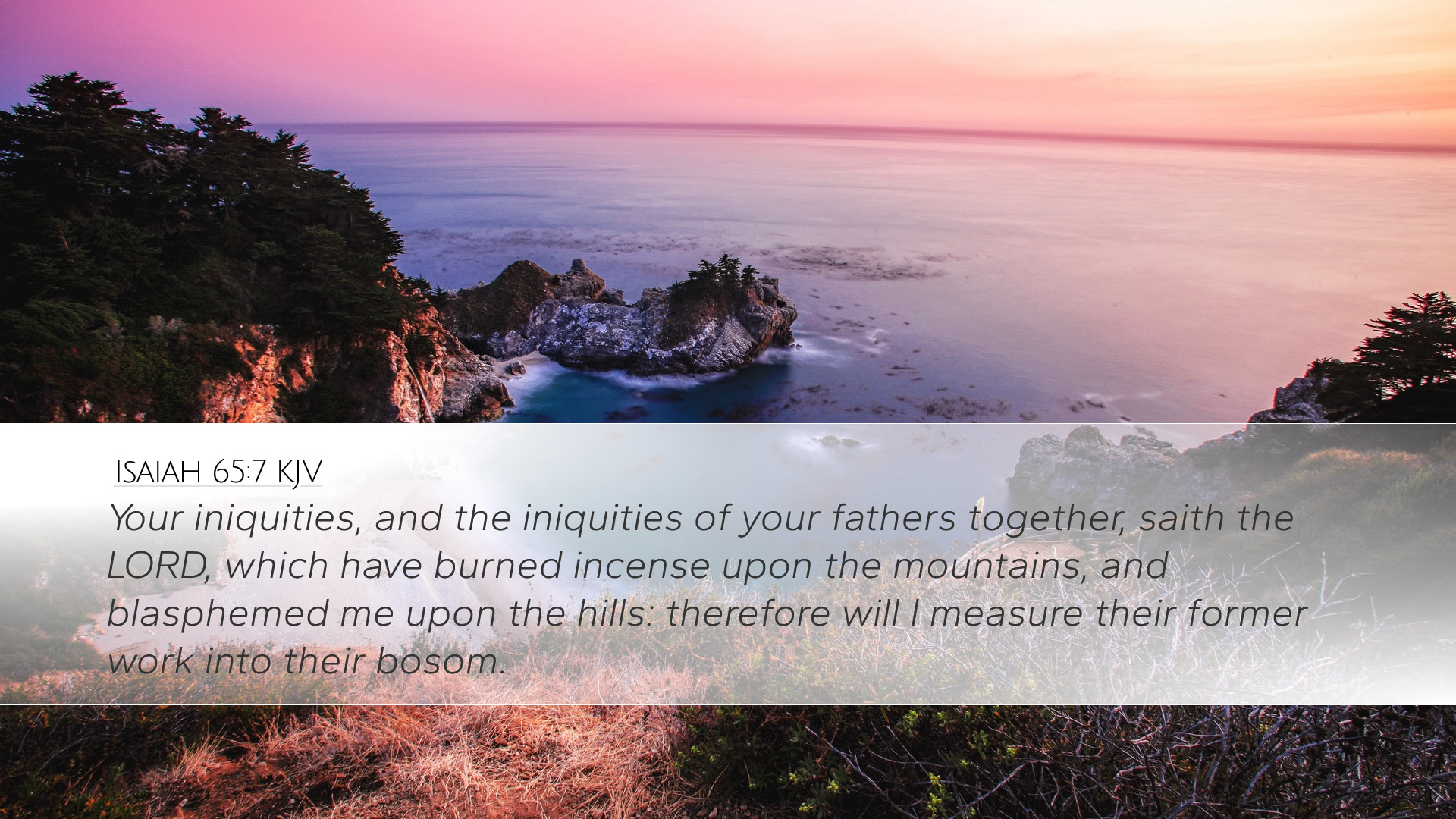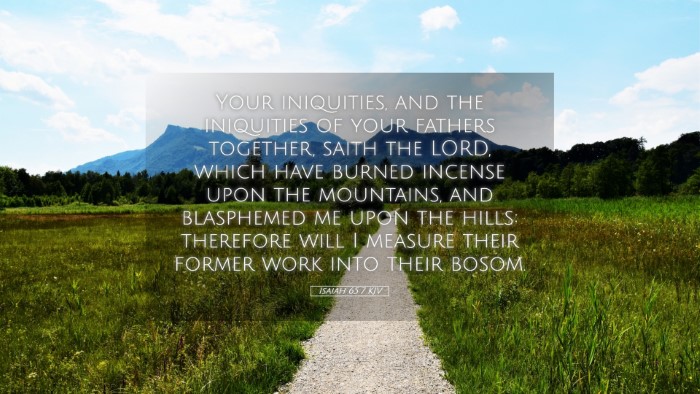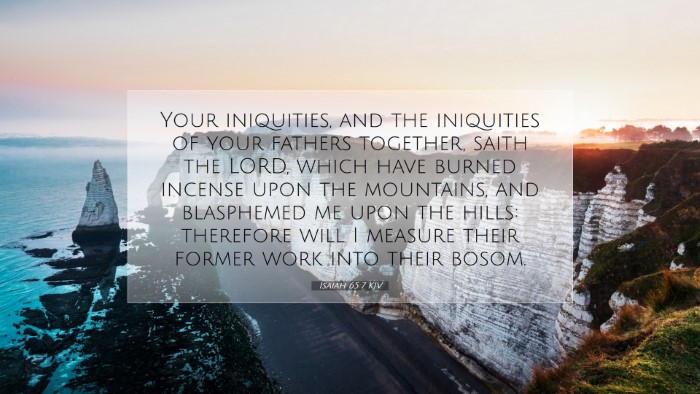Commentary on Isaiah 65:7
Verse Text: "Your iniquities, and the iniquities of your fathers together, saith the Lord, which have burned incense upon the mountains, and blasphemed me upon the hills: therefore will I measure their former work into their bosom."
Introduction
The verse Isaiah 65:7 serves as a poignant reminder of the consequences of sin and the severe judgment that arises from persistent iniquity. This passage encapsulates a broader theological perspective that resonates throughout the Scriptures, wherein the sins of both individuals and communities have far-reaching implications. Insights from Matthew Henry, Albert Barnes, and Adam Clarke help to elucidate the meaning, context, and application of this verse for today’s believers.
Contextual Background
This verse appears in a prophetic narrative addressing Israel, a people that had strayed from the covenantal relationship with God. In Isaiah's time, the Israelites were engaged in idolatrous practices, offering incense to false gods on high places, which was both a symbolic and literal blasphemy against Yahweh. The Lord, through Isaiah, speaks critically about the systemic nature of their sin, linking individual iniquities to familial and national transgressions.
The Nature of Iniquity
Henry comments extensively on the nature of iniquity, noting:
- Inherited Sin: The sins of fathers profoundly affect their children; iniquities are not only individual but also generational.
- Public vs. Private Sins: The engagement in public idolatry indicates a collective turning away from God.
- Severity of Offense: Blaspheming God, especially in worship practices, signifies a deep-rooted spiritual rebellion.
Divine Response
Barnes highlights the consequential nature of divine justice as articulated in this text:
- Measurement of Iniquities: God promises to "measure their former work into their bosom," suggesting that divine recompense will correspond to the severity and magnitude of the iniquities committed.
- Judgment as a Theme: This verse reiterates a recurring biblical theme where judgment serves as a necessary aspect of God's justice, enabling restoration through consequences.
Theological Reflection
Adam Clarke provides a rich theological reflection on this verse:
- Sovereignty of God: God’s sovereignty is declared in His right to judge and the certainty with which He will address the sins of His people.
- Hope for Repentance: Implicit within this judgment is the possibility of repentance, where acknowledging sin can restore relationship with God.
- Call to Accountability: Each generation is called to account for its actions, underscoring the importance of individual and corporate responsibility before God.
Practical Applications for Today
This verse, while rooted in a historical context, offers several applications relevant to contemporary believers:
- Understanding Consequences: Like the Israelites, individuals today must recognize the lasting impact of sin, both in personal lives and within communities.
- Encouragement for Repentance: The openness of God to hear and forgive should compel believers to seek restoration rather than indulge in pride or denial of sin.
- Collective Responsibility: The community of faith is urged to embody accountability, recognizing that collective sin can disrupt communal health and spiritual vitality.
Conclusion
Isaiah 65:7 serves as a clarion call to reflect on the gravity of sin and the holiness of God. As we discern the depths of our iniquities, we stand reminded of the grace offered through repentance and the transformation available in the salvific work of Christ. This verse not only challenges our understanding of judgment but encourages a lifestyle anchored in accountability, holiness, and the pursuit of a deeper relationship with our Creator.


